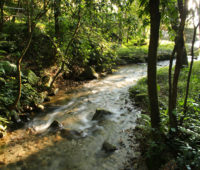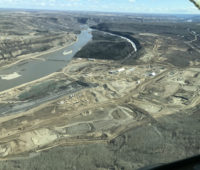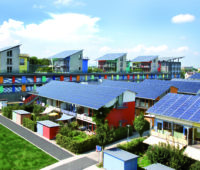A collaboration between Duke University scholars and the Alabama Center for Rural Enterprise (ACRE) has focused on environmental justice questions in rural Alabama. In this essay, the partners describe their research on how sewage and related environmental problems intersect with broader social structural issues, and consider how to address these challenges. The authors also reflect on the process by which scholars and community-based organizations can work together, and what goes into a mutually rewarding partnership.





























